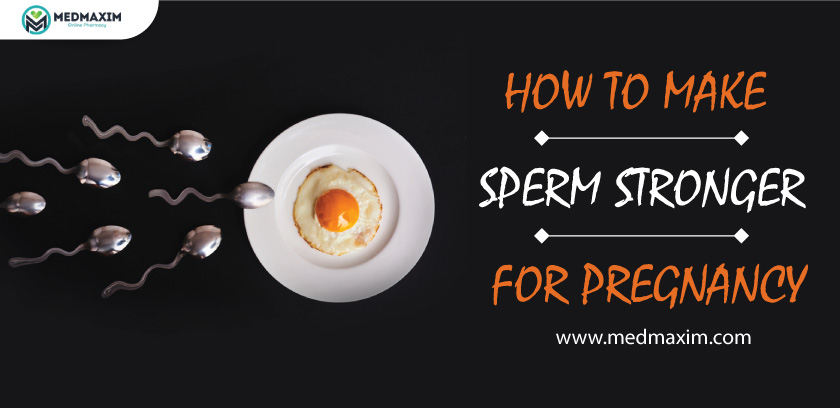Healthy sperm cannot always be taken for granted. Understand how lifestyle factors can affect your sperm and what you can do to improve your fertility.
Moreover, People planning a pregnancy may wonder about the health of their sperm. Learn what can affect male fertility, then consider steps to help sperm get there.
What Determines Sperm Health?
Sperm health depends on several factors, including number, movement, and structure:
Quantity Fertility is more likely when the semen released in a single ejaculation (ejaculate) contains at least 15 million sperm per milliliter. Too few sperm in an ejaculate can make pregnancy more difficult as there are fewer candidates available for fertilization of the egg.
Movement
To reach and fertilize an egg, sperm must move, rotate, and swim through a woman’s cervix, uterus, and fallopian tubes. This is called motility. Pregnancy is possible when less than 40% of the sperm move in the ejaculate, but this is considered a threshold. The more the better.
Structure (Morphology)
Typical sperm have oval heads and long tails that work together to propel them. This is not as important a factor as sperm count or movement.
What Causes Male Fertility Problems?
Several medical issues can contribute to male fertility problems, including the hypothalamus or pituitary gland, parts of the brain that tell the testicles to produce testosterone and sperm (secondary hypogonadism)Testicular diseases Sperm transport disorders Age can also play a role.
Sperm motility and the typical sperm count tend to decrease with age, which has an impact on fertility, especially after the age of 50.
What is the best way to produce healthy sperm?
Some Of The Simple Steps To Increase Your Chances Of Healthy Sperm Production Include:
Maintain A Healthy Weight
Some research suggests that increased body mass index (BMI) is linked to decreased sperm count and exercise.
Eat Healthily
Choose plenty of fruits and vegetables, which are high in antioxidants and may improve sperm health.
Prevent sexually transmitted infections (STIs)
Sexually transmitted infections such as chlamydia and gonorrhea can cause infertility in men. You’re not infected: It can help protect against STIs. manage stress. Stress can affect sexual function and affect the hormones needed to make sperm.
Movement
Moderate physical activity can increase levels of powerful antioxidant enzymes that may help protect sperm.
What Is Forbidden?
Sperm can be particularly vulnerable to environmental factors, such as excessive heat or toxic chemicals. To protect fertility:
Do Not Smoke
If you smoke, ask your doctor for help to quit. Limit alcohol consumption. Excessive alcohol consumption can reduce testosterone production, impotence, and decreased sperm production. If you choose to drink, do so in moderation. per day for women and two drinks per day for men.
Avoid Using Lubricants During Intercourse
While more research is needed on the effects of lube on fertility, you should avoid lube during intercourse. If needed, consider using mineral oil, canola oil, mustard oil, or a fertility-friendly lubricant like Pre-Seed.
Talk To A Healthcare Provider About Medication
Moreover, Calcium channel blockers, tricyclic antidepressants, antiandrogens, opioids, and other medications can contribute to fertility problems. Anabolic steroids and other illegal drugs can have the same effect.
Watch Out For Toxins
Exposure to pesticides, lead, and other toxins can affect sperm quantity and quality. If you must work with toxins, do so safely. For example, wear protective clothing, wear protective equipment such as safety goggles, and avoid skin contact with chemicals
Stay Calm
The increased temperature of the scrotum can impede sperm production. Although the benefits aren’t fully proven, wearing loose-fitting underwear, reducing sedentary time, avoiding saunas and hot tubs, and limiting exposure of the scrotum to hot objects like a laptop can improve sperm quality.
Moreover, Chemotherapy and radiation therapy for cancer can affect sperm production and lead to permanent infertility. Ask a doctor about the possibility of collecting and storing sperm prior to treatment.
When Is It Time To Seek Help?
Adopting a healthy lifestyle to promote fertility and avoiding things that can harm it can improve your chances of conceiving. However, if you and your partner have not gotten pregnant after a year of unprotected sex, you might consider an infertility test. A fertility specialist may be able to identify the cause of the problem and offer treatments that can put you and your partner on the path to parenthood.
Get Enough Vitamin C
Moreover, You’re probably aware of vitamin C’s ability to boost the immune system. Some evidence suggests that taking antioxidant supplements like vitamin C may improve fertility. Oxidative stress occurs when reactive oxygen species (ROS) levels reach harmful levels in the body. It occurs when the body’s antioxidant defenses are overwhelmed by illness, age, an unhealthy lifestyle, or environmental pollutants. A study in infertile men showed that taking vitamin C supplements of 1,000 mg twice a day for up to 2 months increased sperm motility by 92% and sperm count by more than 100%. It also reduced the percentage of malformed sperm by 55%.
Getting Enough Vitamin D
Vitamin D may be important for male and female fertility. It is another nutrient that can increase testosterone levels. An observational study showed that men with vitamin D deficiency are more likely to have low testosterone levels. A controlled study of 65 men with low testosterone and vitamin D deficiency supported these findings. Taking 3,000 IU of vitamin D3 daily for 1 year increased his testosterone levels by about 25%. High vitamin D levels are linked to increased sperm motility, but the evidence is conflicting.
Get Enough Zinc
Zinc is an essential mineral found in large amounts in foods of animal origin such as meat, fish, eggs, and shellfish. Moreover, Getting enough zinc is one of the cornerstones of male fertility. Observational studies show that low zinc status is associated with low testosterone levels, poor sperm quality, and an increased risk of male infertility.
Eating Maca Root
Taking supplements made from maca root can also improve libido, as well as fertility, and sexual performance. Maca root is a popular plant food that originated in central Peru. Traditionally it is used for its ability to improve libido and fertility. Multiple studies in men showed that taking 1.5 to 3 grams of dried maca root for up to 3 months improved self-reported sexual desire or libido.





